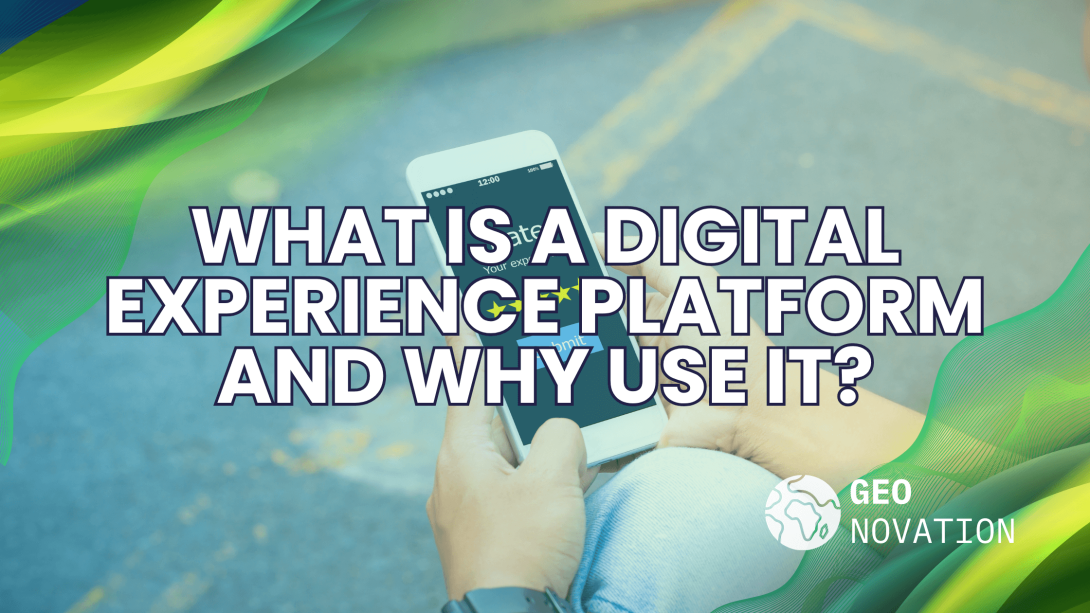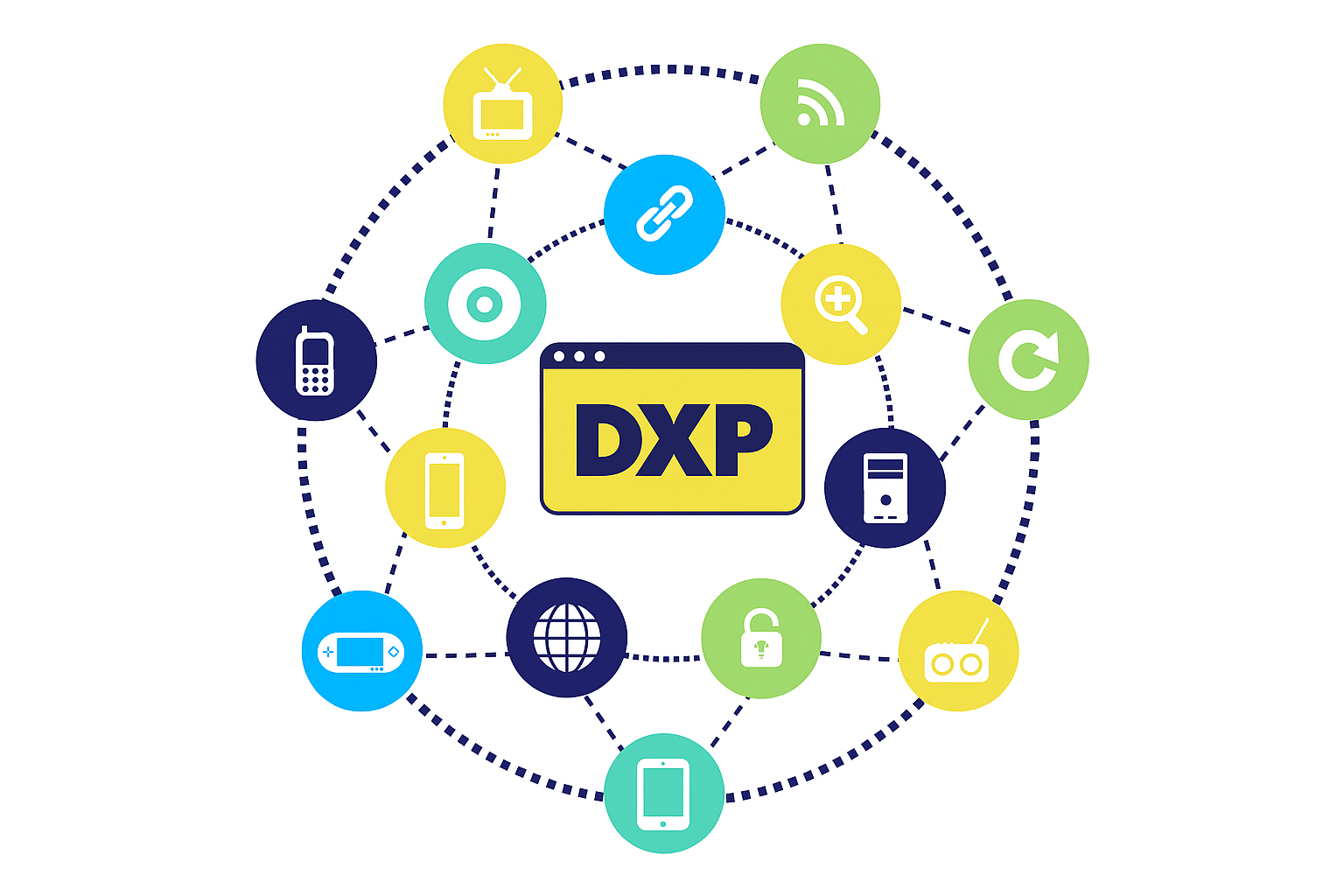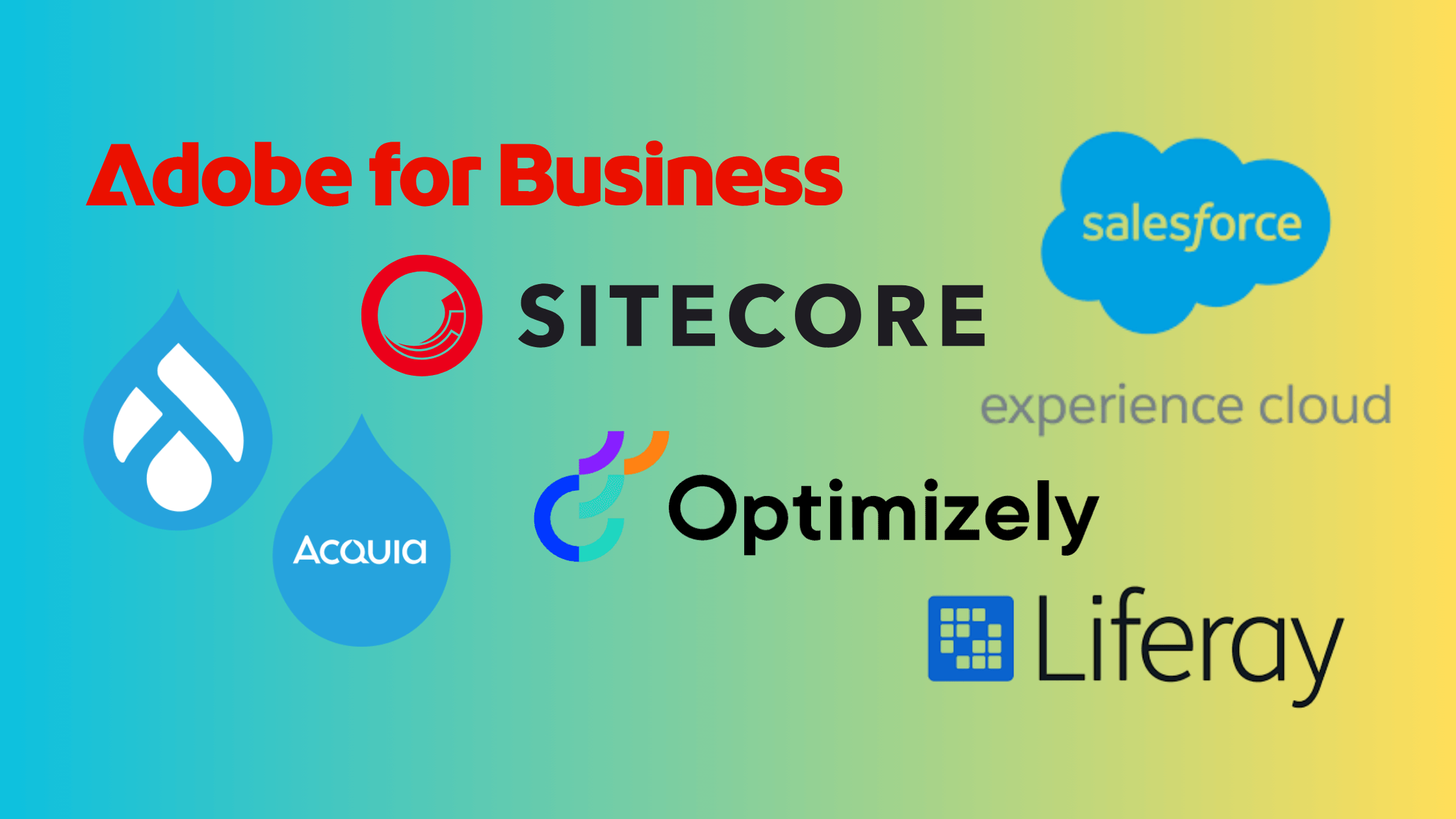- Home
- A Guide To Understanding Digital Experience Platforms
A Guide to Understanding Digital Experience Platforms

3 July, 2025
Unlocking Next-Level Personalization and Omnichannel Engagement for Enterprise Growth
In today's hyper-connected digital world, customers expect more than just a website; they expect an experience. A Digital Experience Platform (DXP) isn’t just another tech acronym to memorize; it's a strategic necessity for enterprises aiming to deliver seamless, personalized experiences across every digital touchpoint.
Whether you're a CTO evaluating your martech stack or a digital strategist developing ABM (Account-Based Marketing) initiatives for Fortune 500 clients, understanding the power of DXPs can be your competitive edge. Let’s explore what a DXP is, why it matters, and how it transforms enterprise-level engagement.
What is a Digital Experience Platform?

A Digital Experience Platform (DXP) is a suite of integrated technologies designed to manage, deliver, and optimize personalized, omnichannel digital experiences. At its core, a DXP enables companies to unify content, data, and customer journeys across multiple channels, websites, apps, social platforms, IoT devices, and more.
Gartner defines a DXP as:
"An integrated set of core technologies that support the composition, management, delivery, and optimization of contextualized digital experiences."
Key Components of a DXP
- Content Management (CMS) – for creating and delivering content.
- Customer Data Platform (CDP) – to consolidate and leverage customer data.
- Personalization Engines – for tailoring experiences in real-time.
- Analytics & AI – for insight generation and experience optimization.
- Workflow & Orchestration Tools – to streamline campaign execution.
- APIs & Integrations – for connecting CRM, ERP, eCommerce, and martech platforms.
Why Do Enterprises Need a DXP?
Legacy CMS systems can no longer keep up with modern customer demands. Enterprises operating across multiple regions, languages, and channels need more than static content; they need dynamic, intelligent, and scalable solutions.
1. Unified Customer View
DXPs gather data from multiple sources, creating a 360° view of each customer. This unified profile powers more accurate targeting, segmentation, and personalization essential for ABM strategies where individual account engagement is key.
2. Omnichannel Experience Delivery
Whether a customer interacts via your website, mobile app, or voice assistant, a DXP ensures the brand experience remains cohesive, relevant, and consistent.
3. Agility and Scalability
With modular architecture and cloud-native features, DXPs help large enterprises adapt quickly to market shifts, launch digital campaigns faster, and scale globally with ease.
DXP vs CMS: What's the Difference?
While a traditional CMS (Content Management System) focuses on content publishing (think WordPress or Joomla), a DXP takes a holistic, data-driven approach to the entire customer journey.

For an example of a CMS evolving into a DXP-ready platform, look no further than Drupal’s roadmap to version 11, where headless capabilities and composability are central themes.
DXPs and ABM: A Match Made in Martech Heaven
Account-Based Marketing (ABM) demands extreme personalization and strategic orchestration, both of which are natively supported by DXPs.
Here’s how DXPs empower ABM:
- Hyper-Personalized Content – Deliver dynamic content tailored to each target account’s role, industry, or buying stage.
- Intelligent Segmentation – Use behavioral and firmographic data to fine-tune messaging.
- Campaign Orchestration – Coordinate email, web, and mobile experiences from one central platform.
- Performance Analytics – Real-time insights help you adjust ABM tactics as buyer behavior evolves.
For instance, if you’re marketing AI tools for software development to CTOs in the finance sector, your DXP can dynamically serve case studies and whitepapers specifically curated for that vertical. (Speaking of which, explore our list of best AI tools for software development to stay ahead of the innovation curve.)
Composable DXPs: The Future is Modular
The DXP landscape is shifting toward composable architecture, a modern approach that allows enterprises to "compose" their digital experience stack from best-of-breed solutions.
Rather than locking into a monolithic system, composable DXPs allow seamless integration with microservices, third-party apps, and APIs. This provides the agility and flexibility needed to tailor experiences without vendor lock-in.
Tools like Drupal, when paired with headless delivery and GraphQL APIs, fit well within a composable DXP strategy. This is particularly effective for nonprofits or NGOs with limited resources but global reach. Learn more in our piece on why Drupal is the best CMS for nonprofits and NGOs.
Top DXP Platforms in 2025

While the right DXP depends on your tech ecosystem and business goals, here are some leading platforms for enterprise use:
- Adobe Experience Platform
- Sitecore Experience Cloud
- Acquia (Drupal-based)
- Salesforce Experience Cloud
- Optimizely
- Liferay DXP
Each offers unique strengths in personalization, headless delivery, AI integration, or open-source flexibility.
Key Considerations Before Adopting a DXP
- Business Goals Alignment – Ensure the DXP supports specific goals like lead generation, global scaling, or ABM.
- Tech Stack Compatibility – Check integration capabilities with your CRM, ERP, eCommerce, etc.
- User Roles & Permissions – Choose a platform that supports collaboration between marketers, developers, and analysts.
- Budget & Licensing – Some DXPs can be cost-prohibitive; open-source options like Acquia/Drupal can be more flexible.
- Customization vs. Out-of-the-Box Features – Balance agility with ease of use.
Final Thoughts: DXP as a Strategic Differentiator
A DXP isn't just a tool; it’s a strategic enabler of growth, loyalty, and competitive differentiation. For organizations targeting high-value accounts or operating at scale, DXPs offer the precision, flexibility, and intelligence required to deliver the right experience to the right person at the right time.
Whether you're rolling out a new ABM campaign or replatforming your digital presence, a well-architected DXP will make your brand not just visible, but unforgettable.
Continue Your Martech Journey
- Explore the best AI tools transforming software development in 2025
- See what’s coming in Drupal 11 and how it fits into the future of DXPs
- Discover why Drupal is ideal for nonprofits with complex digital needs
Ready to Deliver Next-Level Digital Experiences?
At Geonovation, we don’t just build websites, we architect scalable, intelligent digital ecosystems tailored for personalization, omnichannel engagement, and enterprise growth.
Whether you’re looking to unify your CMS, CRM, and martech stack, launch a composable DXP strategy, personalize content across customer journeys, or align your platform with ABM and analytics goals.
We’ll help you evaluate the right tools, integrate Drupal into your DXP strategy, and design solutions that scale with your business.
Book a free strategy session with our team to explore how your organization can move beyond content and into full digital experience orchestration.